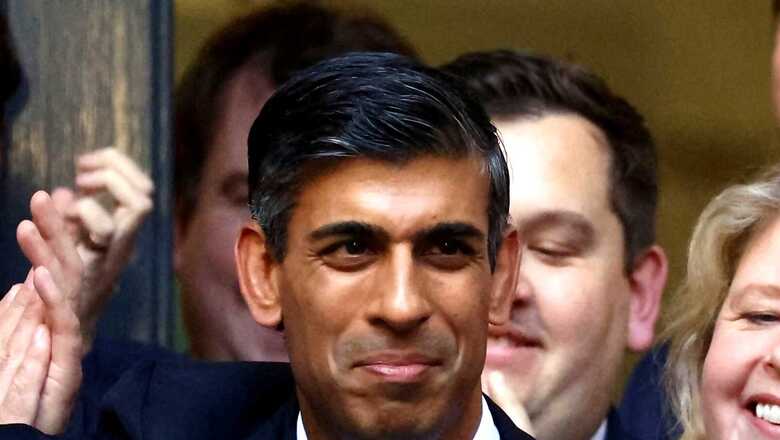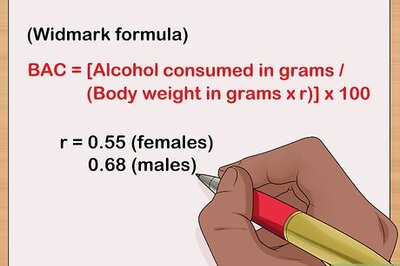
views
Even as Indian-origin Rishi Sunak has become the UK’s prime minister, the status of the UK-India trade deal is getting attention as he has been vocal for the bilateral trade pact. Though the free-trade agreement (FTA) was earlier planned to be signed by Diwali this year (October 24), it could not be materialised due to the death of Queen Elizabeth II and the political churn and economic turmoil in the UK. Here’s all about India-UK trade, the ongoing trade pact negotiations, and what India must focus on:
What Is A Free-Trade Agreement?
A free-trade agreement is a pact between countries under which customs tariff and non-tariff barriers are reduced or eliminated on a substantial amount of trade. The FTAs may include trade in goods and services, intellectual property rights and investment, among others.
In May 2021, Prime Minister Narendra Modi and his then UK counterpart Boris Johnson announced an “enhanced trade partnership” as a first stage of a possible comprehensive free-trade agreement. Since then, five rounds of negotiations have completed and the talks are in final stages. In the fifth round in August, technical experts from both sides came together for detailed draft treaty text discussions in 85 separate sessions covering 15 policy areas.
How Much Is The Trade Between India and the UK?
The UK is the sixth-largest source of FDI for India, with inflows of $32 billion between April 2000 and June 2022. The UK is also the seventh-largest export destination for India. The trade between the two countries has seen a significant jump in the past decade, with the bilateral trade rising 22.7 per cent to $13.1 billion between FY21 and FY10.
In 2021-22, the bilateral trade in goods between India and the UK got a boost when it rose to $16 billion in 2021-22 as compared with $13.1 billion in 2020-21, a jump of 22.17 per cent. In the current financial year 2022-23 so far, the India-UK bilateral trade stood at $8.85 billion, which is around 40 per cent higher year-on-year as compared with $6.28 billion in the year-ago corresponding period, according to official data.
According to data from data analytics firm GlobalData, India’s exports to the UK stood at $8.15 billion during the period 2020-21, while imports were recorded at $4.95 billion.
What Are Major Export and Import Items Between India and UK?
India’s main exports to the UK included ready-made garments and textiles, gems and jewellery, engineering goods, petroleum products, transport equipment, spices, pharmaceuticals, and marine products. However, the main imports from the UK included precious and semi-precious stones, ores and metal scraps, engineering goods, chemicals and machinery. Both India and UK aim to reach bilateral trade amounting to $100 billion by 2030.
How Can India-UK Trade Pact Help?
The FTA between India and the UK is expected to create employment opportunities, growth, and other opportunities for both countries. It is also expected to give a major boost to Indian exports in labour-intensive sectors, including leather, textile, jewellery, and processed agro products, among others.
Bindi Patel, senior economic research analyst at data analytics firm GlobalData, “With India being a tech-giant and in the age of start-ups, the FTA would enable the new/ mid-sized companies to have access to the UK market. The removal of tariffs would encourage increased competition in industries, including automobiles and pharma.”
What Key Things India Should Focus On While Finalising FTA?
Some of the major parameters that India should aim to bring about clarity with respect to the FTA and which would be beneficial to both nations include mobility of professionals, students and automobiles. India should also gain market access to the UK legal services sector, as the service trade accounts for 60 per cent of the overall annual commerce between India and the UK.
Patel said, “The topics in the FTA that need to resolve and require much clarity from both nations mainly include liquor, automobiles, and intellectual property rights.”
Read all the Latest Business News here


















Comments
0 comment